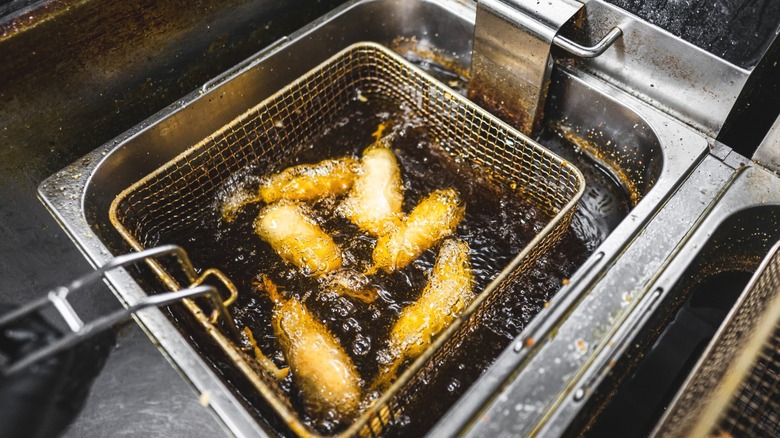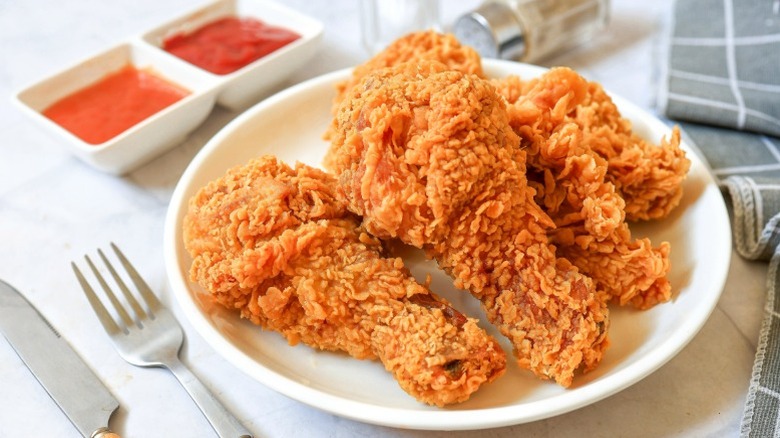The Most Dangerous Deep Fryer Disaster And How To Avoid It
As cooking methods go, deep frying is the very definition of "high risk, high reward." On the one hand, there is no better way to make something crisp, golden, and delicious, whether you're frying up some Nashville hot chicken (supposedly invented by a jilted wife) or preparing some tasty fish and chips with cod or haddock. On the other hand, you're going to be dealing with some seriously hot oil, and that can get really dangerous really quickly. There are plenty of rules and tips to follow to be as safe as possible when deep frying, but this one is arguably the most important: always, always make sure your food is as dry as possible before frying it. Otherwise, it could end in disaster.
You've probably seen those stories circulating around Thanksgiving about deep frying a turkey and the importance of completely thawing and patting it down to dry first — maybe with those eye-catching videos of fryers exploding when a wet turkey is put inside. But the same principle also applies to anything else you want to fry. When oil and water are introduced, it's like "Kill Bill" sirens start to blare. They're going to want to get as far away from each other as possible, which means the water will evaporate and send hot oil flying out of the fryer (and quite possibly right into your face). If you're really unlucky, it could start a fire or even cause an explosion.
To avoid disaster, thoroughly pat your food dry
There's no way around it: if you want to safely fry your food, in a deep fryer or otherwise, you want it to be bone dry. Sahara dry. Dry as Chinese arithmetic. Dry as the debut album of PJ Harvey. We cannot stress this enough. You want to pat it down thoroughly with a napkin or a paper towel, absorbing as much moisture as possible. While breading or battering your food will provide some additional protection between moisture and oil, it is by no means sufficient on its own. You have to pat down your food.
The difference is clear right from the moment you put your food in the oil. If it's not properly patted dry, it will burble and roil and make a terrible noise, even before it starts to spatter and do serious damage. If you've done it right, however, it will accept the food with little bubble, toil, or trouble.

